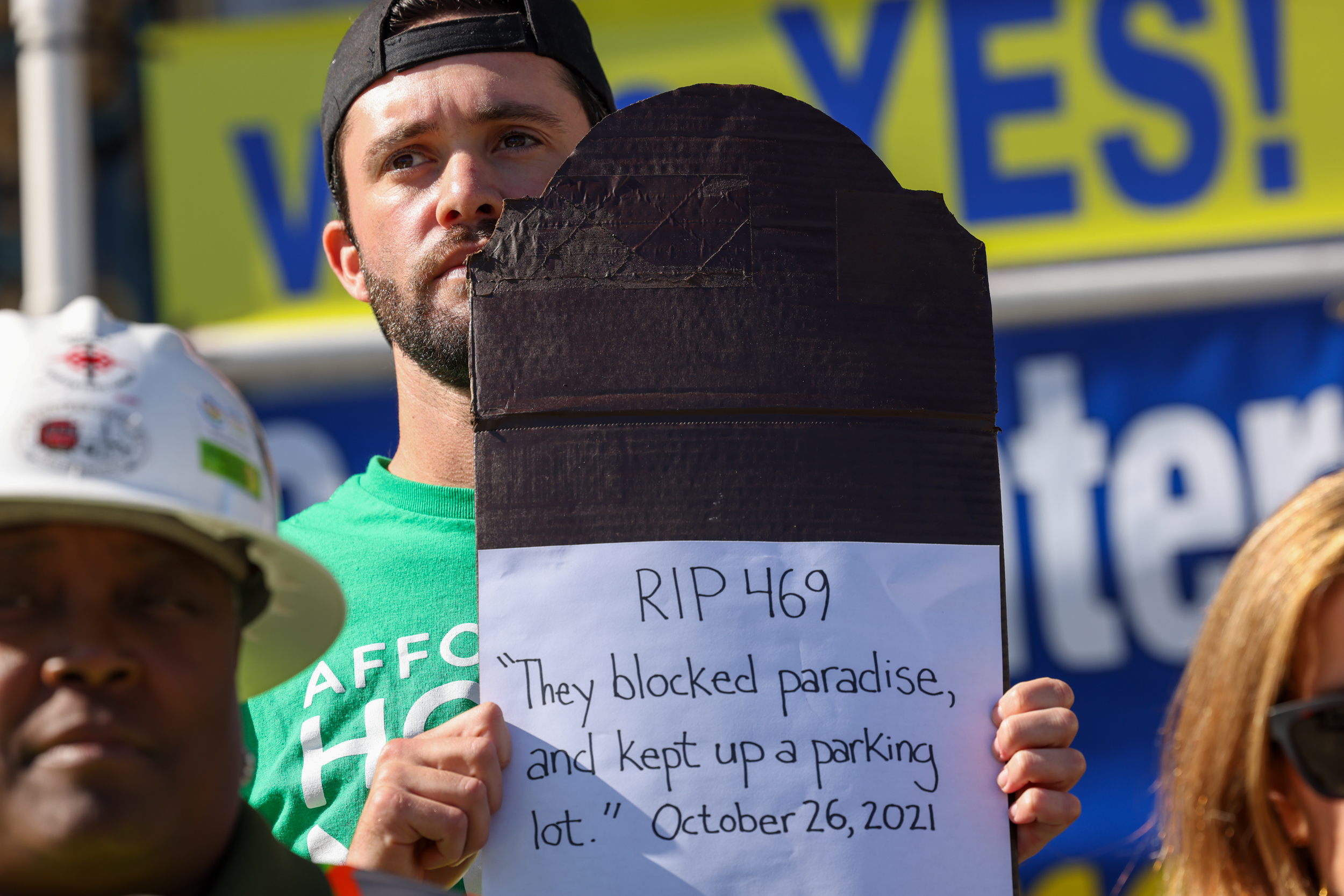One of the biggest San Francisco battlegrounds over housing in the past few years was a SoMa parking lot that served the now-shuttered Nordstrom at what used to be the Westfield mall.
In 2021, the Board of Supervisors voted 8-3 to reject a proposed 495-unit project at 469 Stevenson St., arguing it needed more environmental review and overturning a Planning Commission approval in the process. The move infuriated pro-development activists, who pointed to the vote as a prime example of the city’s frequent obstruction of much-needed housing development.
YIMBY Law, the legal arm of the pro-housing supply group YIMBY Action, sued, arguing that the city had violated state law by delaying the approval. When a San Francisco judge batted down that initial argument, the group followed up with an appeal.
The challenge went out with a whimper after the Board of Supervisors approved a settlement in which the pro-housing group paid $32,000 to the city to cover part of the cost of litigating the case.
“The City Attorney’s Office prevailed in getting all four of the petitioner’s claims dismissed by the trial court. As the prevailing party, under California law, the City was entitled to recover its costs in defending the suit,” San Francisco City Attorney spokesperson Jen Kwart said in a statement.
Kwart said that although “the city was prepared to litigate the appeal,” the agreement was reached before any arguments were submitted.
Meanwhile, as the court case was proceeding, the project went up again for approval by the San Francisco Planning Department, which again gave it the green light after 18 months of additional review by the developer to study its impact on displacement and gentrification.
TODCO, an affordable housing nonprofit that initially objected to the project, said it would not do so again, citing the current economic environment, which would make it difficult to get a high-rise apartment financed and built.
San Francisco, which has a notorious reputation for being one of the most difficult cities in which to get things built, approved a state-mandated plan last year to permit 82,000 new homes by 2031.
Sonja Trauss, a founder of the Yes in My Backyard movement and the executive director of YIMBY Law, said the organization decided to settle in part because the project was later approved. She also pointed to new state legislation introduced as a direct result of the spat around 469 Stevenson.
San Francisco Assemblymember Phil Ting introduced AB 1633, which was signed into law by the governor last year. The legislation allows developers to directly sue local governments that block urban infill housing projects (like 469 Stevenson) by requiring additional environmental review.
Essentially, the law explicitly allows groups like YIMBY Law to make the legal argument that failed to gain traction in its initial lawsuit challenging the 469 Stevenson approval process.
While it’s hard to paint the debate over the project and the settlement as a comprehensive victory for pro-development groups, particularly as the site remains a vacant lot, Trauss argued that the public furor over 469 Stevenson served as a milestone in the battle for public opinion.
“I think it was a wake-up call to local electeds that the public is much less tolerant of the highly politicized process around building housing than it used to be,” Trauss said.
